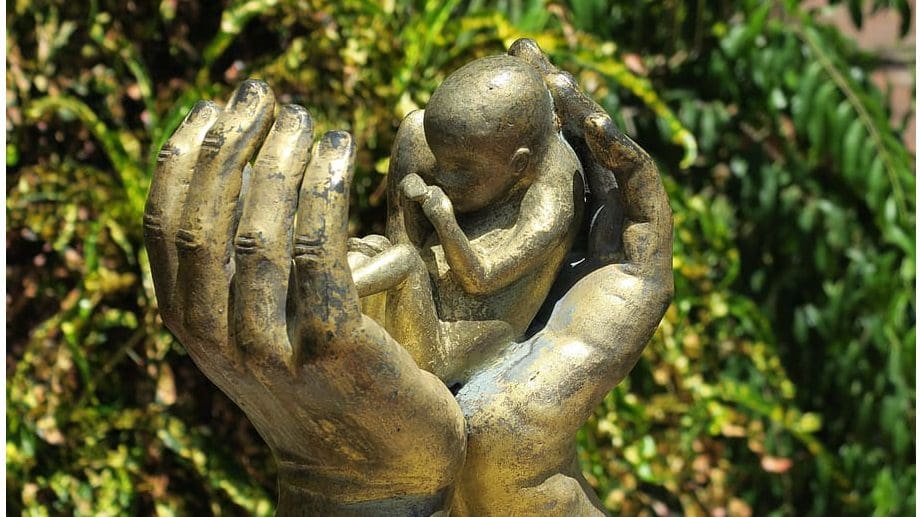Judit Rácz-Földi, an MP of the opposing Democratic Coalition (DK) criticised Prime Minister Viktor Orbán last week for having ‘failed’ couples seeking fertility treatment. The Fidesz Party went against the DK’s proposal for free in vitro fertilisation (IVF) procedures, after it ‘scrapped’ a home purchase subsidies scheme for families with children along with prenatal baby credit. According to the MP, the government has taken away the opportunity to have a family from ‘thousands’ of Hungarians.
This in part is due, according to Rácz-Földi, because the Fidesz-led government nationalised IVF clinics. Since then, the waiting list for procedures has ‘drastically’ increased. While the current rules allow women to undergo five state-financed IVF procedures, the DK would have removed that limit until the birth of a first child.
Procreation is a between a man and a woman is both natural and a blessing from God, however, in vitro fertilisation is not
—the means to procreate in this manner is contrary to the moral natural law.
The Immorality of IVF Procedure
IVF is one of the popularly known types of Assisted Reproductive Technology, which is a combination of some surgical procedures and medications to help sperm fertilize an egg; it is a reproductive technique with the intention to procreate. The ova from the woman, along with the sperm from the man, are retrieved and the two are placed in a lab dish. Fertilisation soon follows and the embryo is placed in the woman’s uterus. Aside the unethical aspect of IVF, the procedure places the child at the hands of technology, simultaneously altogether disregarding the sanctity of human life.
In IVF, conception takes place outside the mother’s body, rendering the natural conjugal act between husband and wife in itself as alien to the institution of the family. Man and woman no longer come together as one, but are rather utilised in the creation of human embryos—practitioners would normally transfer two or even three embryos, which considerably increased the rate of multiple pregnancies into the woman’s uterus. In fact, those ‘extra embryos’, i.e., those not used for the couple, are either frozen for later use or terminated.
This discarding is the same as committing an abortion.
IVF is separated into heterologous and homologous. The former involves a man’s sperm or a woman’s ova, outside the marriage. The latter is strictly the husband’s sperm and his wife’s ovum. In both instances fertilisation occurs outside the uterus.
Heterologous IVF, or surrogate motherhood, involves in vitro fertilisation or artificial insemination within another woman. This not only harms that unitive act of marriage between husband and wife, but it reduces the child to a mere group of cells.
The surrogate mother, who may see this as heroic and as a good end, becomes a tool for herself or someone else who wishes to satisfy a desire. As a result, children are not seen as gifts from God, but instead as objects to be frozen, or even discarded. Since the unitive and procreative aspects are separated, and the conjugal act is absent, such artificial reproductive technologies are in direct contradiction to the natural moral law, more so with the preimplantation diagnosis to choose a male of female embryo genetically altered by the practitioners at the behest of the ‘parent(s)’.
This preimplantation diagnosis is nothing more than an expression of a eugenic mentality that ‘accepts selective abortion in order to prevent the birth of children affected by various types of anomalies’, as Prefect of the Congregation for the Doctrine of the Faith Cardinal William Joseph Levada had explained in 2008. ‘Such an attitude’, Levada added, ‘is shameful and utterly reprehensible, since it presumes to measure the value of a human life only within the parameters of “normality’”and physical well-being, thus opening the way to legitimising infanticide and euthanasia as well’.
This selective breeding is as bad as the coerced sterilisation of people with disabilities—Hungary still being one of three EU member states that allow sterilisation of minors; the other two are the Czech Republic and Portugal.
The Perils of IVF Procedure
Apart from the unsuccessful rate of IVF live births, there are side effects the woman experiences, such as constipation, breast tenderness, cramping and bloating, headaches, mood-swings, and abdominal pain. Other risks include, low birth weight and premature birth, miscarriage, ovarian hyper-stimulation syndrome—a rare condition involving an excess of fluid in the abdomen and chest—and bleeding, infection, or damage to the bowels or bladder.
Also, because physicians tend to transfer more than one embryo into the uterus, the rate of multiple pregnancies increases, as well as the associated problems concerning prematurity and the health of children and mothers.
Returning to the Basics
Marriage between a man and a woman, which has been at the inception of the creation of the human race ‘is in reality something wisely and providently instituted by God the Creator with a view to carrying out his loving plan in human beings. Thus, husband and wife, through the reciprocal gift of themselves to the other—something which is proper and exclusive to them—bring about that communion of persons by which they perfect each other, so as to cooperate with God in the procreation and raising of new lives’.
The IVF threatens this.
On 9 July 1994, the French National Assembly passed laws regulating artificial reproductive technology based on recommendations from the French National Bioethics Committee, which reflected Enlightenment principles, vis-à-vis the preservation of family and preservation of nature.
The French National Bioethics Committee at that time looked at how Jean-Jacques Rousseau drew importance to the family and decided that the ‘bi-parental heterosexual family unit’ was the proper familial unit. Subsequently, other family styles, such as single parents and homosexuals became a detriment.
This was not to say that a single parent, whether he or she became one by divorce or by death of the spouse, could not have children, let alone be altogether be shunned from society. Nor did it mean that non-heterosexuals should be considered lesser human than others. The goal, notwithstanding the shortcomings of the French legislation, was to contain practices that menaced the institution of the family which is founded exclusively on the marriage between male and female. Today, with the redefinition of ‘marriage’, the aforementioned ‘bi-parental heterosexual family unit’ has been nullified.
A gay man, for example, whether he is in a civilly recognised civil union with another man or not, can ‘rent’ the uterus of a woman, i.e., use her body to bear an embryo ‘conceived’ with his sperm cells along with the egg of any woman she chooses. This, like with the practice of abortion and sterilisation, coerced or not, is nothing other than playing God.
Viktor Orbán, during Pope Francis’ Papal visit to Hungary, appealed to Francis to help him keep Hungary Christian. Hungary has done quite a bit to promote the true and proper sense of the institution of the family, thereby protecting children from the unnatural propaganda of the LGTVQ+ movement. Not to mention, there have been further restrictions on abortions. Yet, as the Prime Minister indicated to the Pope, laws can only go so far.
This month marks the forty-fifth anniversary of the first test tube baby when Louise Joy Brown on July 25 1978 was born in England. Since then, over eight million people having been conceived this way worldwide.
We must be able to convince the heart of individuals to return to God and not play God.
Related articles:








